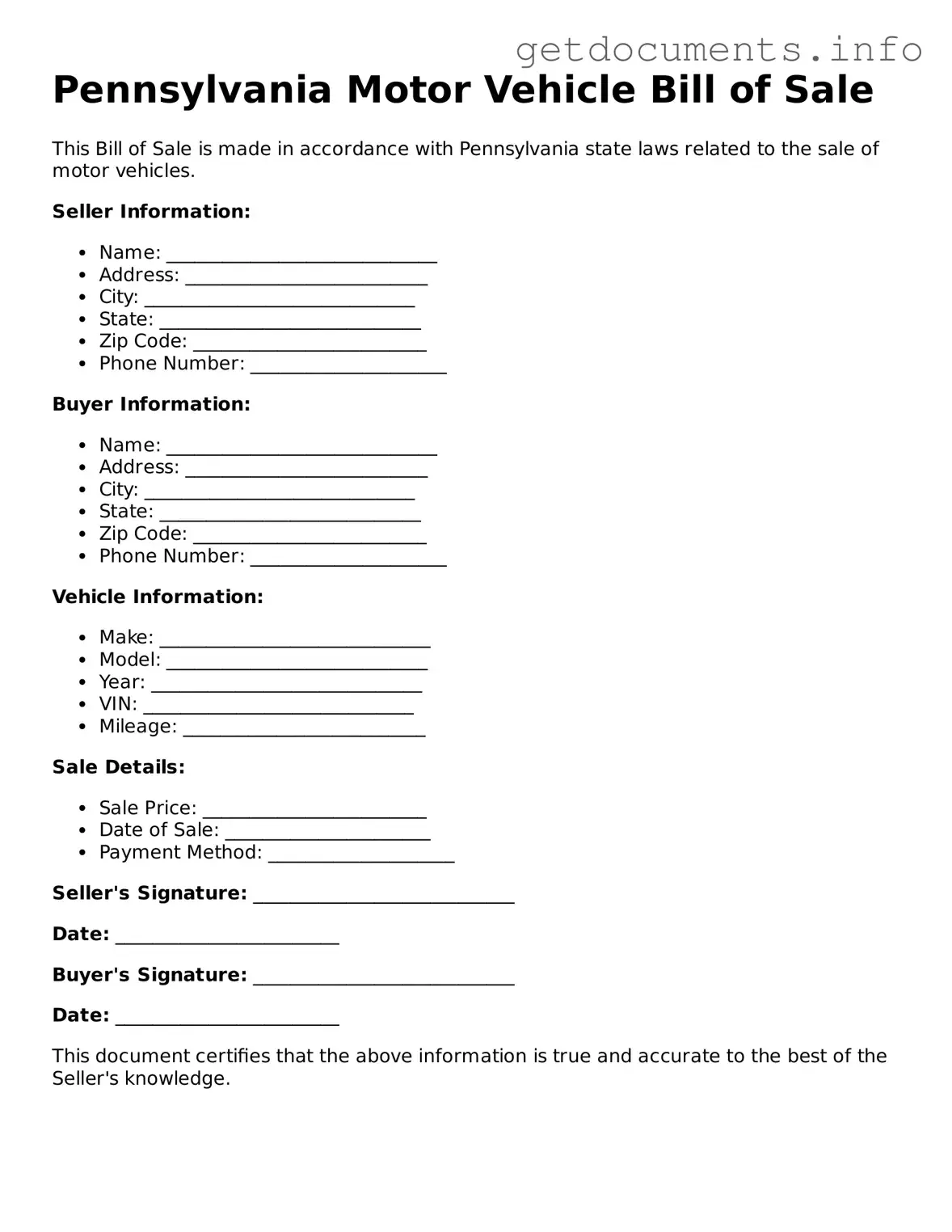Free Motor Vehicle Bill of Sale Template for Pennsylvania
The Pennsylvania Motor Vehicle Bill of Sale form is a legal document that records the sale and transfer of ownership of a motor vehicle in Pennsylvania. This form serves as proof of the transaction and includes essential details about the buyer, seller, and vehicle. To ensure a smooth transfer, it is important to fill out this form accurately; click the button below to get started.
Access Motor Vehicle Bill of Sale Editor

Free Motor Vehicle Bill of Sale Template for Pennsylvania
Access Motor Vehicle Bill of Sale Editor
Got places to be? Complete the form fast
Fill out Motor Vehicle Bill of Sale online and avoid printing or scanning.
Access Motor Vehicle Bill of Sale Editor
or
⇩ PDF File
